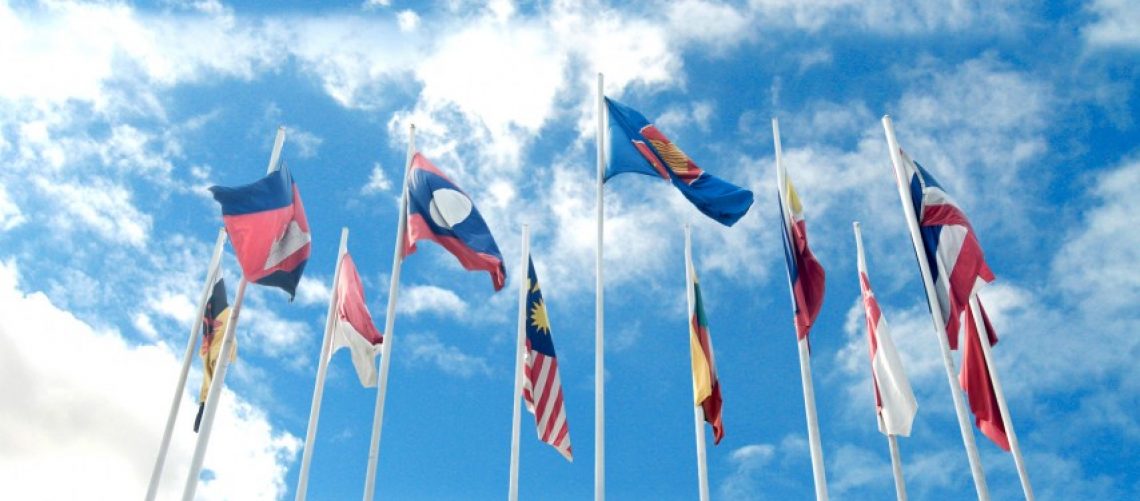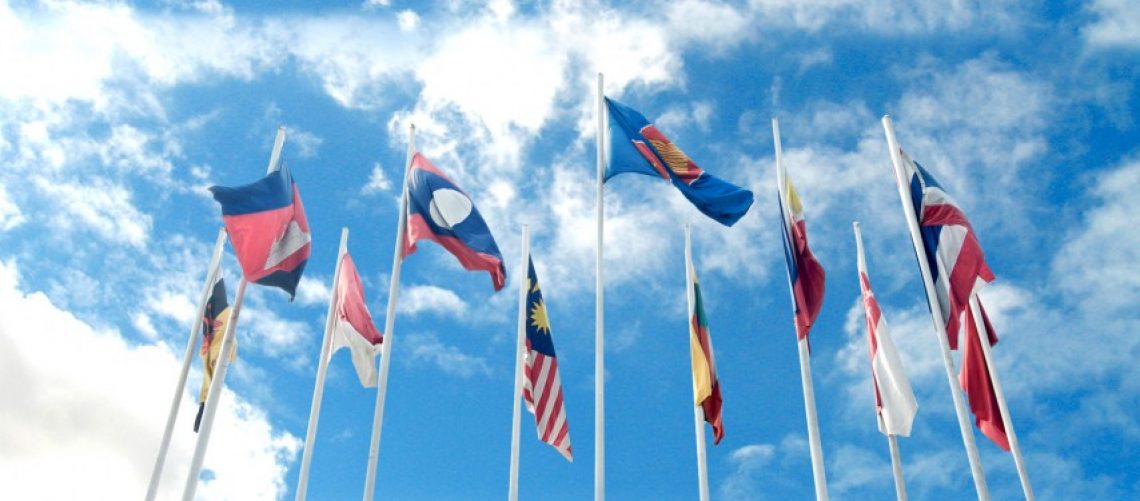Mr. Chairman, Your Royal Highness, Excellencies, Distinguished Guests, Ladies and Gentlemen. May I first of all express our deep appreciation to you Mr. Chairman and the Government of the Philippines for the warm hospitality extended to me and members of my delegation since our arrival in the beautiful city of Manila. Your Chairmanship of the 31st ASEAN Ministerial Meeting takes place at a time that is significant for ASEAN. The last twelve months have indeed been momentous for all of us. After decades of economic growth, which was looked upon by many as a model to emulate, ASEAN countries, as a result of the financial crisis, are faced with the danger of economic slow down. In the most affected countries this has resulted in economic hardship not only for the business community but also to a large sector of the most venerable population. These difficulties occurred despite prudent and appropriate macroeconomic management by the countries concerned. This is made evident by the fact that prior to the financial crisis of 1997 member countries of ASEAN have been registering annual average growth of more than 7 per cent while the world average was around 3 per cent. However, Mr. Chairman, I am confident that ASEAN countries will be able to overcome this temporary setback and emerge stronger and even more vibrant. The financial authorities in ASEAN together with their counterparts outside the region have come up with ways and means of overcoming the crisis. Already some of the ASEAN countries are able to stabilise the situation and restore investors’ confidence. The co-operative efforts continue and it was only last month that Myanmar played host to the ASEAN Senior Finance Officials Meeting in Yangon. It is heartening to know that the region’s economy has been strong and remain strong even in the present situation. Member countries of ASEAN have political stability, the saving rates are high, and they pursue pro-private sector development policies and gave emphasis to Human Resource Development. These strong fundamentals and the resilience of the people would surely contribute to the re-emergence of ASEAN as a significant growth area. I am sure our vision of ASEAN as a concert of Southeast Asia nations enjoying stability and prosperity can be achieved if we stand together and face the present crisis as well as other challenges that lie ahead. Mr. Chairman, As we look back to the last thirty-one years ASEAN has much to be proud of over these years the organisation has grown from strength to strength. ASEAN as a regional grouping has contributed significantly to the economic, political and social stability of Southeast Asia. We are presently implementing the aim of elevating economic and functional co-operation to a higher plane. We have reached across regions and continents and are having meaningful co-operation with our Dialogue and Sectoral partners. With the integration of Myanmar and Laos, we are now very close to the realisation of the dream of an ASEAN 10. These remarkable achievements could be attributed to the far-sightedness of the founders of ASEAN who have espoused the basic principles of ASEAN, principles such as: mutual respect for the independence, sovereignty, equality, territorial integrity and national identity of all nations; the right of every State to lead its national existence free from the external interference, subversion or coercion; and Non-interference in the internal affairs of one another. These and the spirit of equality and partnership have contributed significantly to the cohesion of ASEAN, principles which have served us so well over three decades remained even more valid today. Mr. Chairman, Myanmar has always participated actively in the field of disarmament. We are strong advocates for nuclear disarmament and nuclear non-proliferation. Therefore in December of 1995, even before we became a member of the ASEAN, at the first historic meeting of the Heads of State and Government of 10 Southeast Asian countries, we became a party to the Treaty on Southeast Asia Nuclear Weapons Free Zone. The recent nuclear tests underscore the importance of this Treaty in enhancing peace and security in the region. Mr. Chairman, During the course of our meeting we shall sign a very important Declaration – the Declaration for a Drug-Free ASEAN. At the last Informal Summit our leaders have envisaged, a Southeast Asia free of illicit drugs, free of processing, trafficking and use. With the Declaration we will soon be signing, I am sure, we will contribute to the realisation of this vision. In Myanmar we have taken a campaign against the scourge of narcotic drugs both as a national task and an international duty. Narcotic drugs rend the fabric of society, cause untold suffering to the people at large and have a destabilising effect on countries and governments. Therefore Myanmar, since regaining her independence in 1948, has waged a relentless war on illicit drugs. Over the last ten years more than 760 security personnel had sacrificed their lives and more 2200 were wounded in counter narcotic operations. In the recent years Myanmar government had taken a new approach. Realising that law enforcement alone will not be sufficient it has enhanced its counter-narcotic campaign by adding a long-term programme that will improve the standard of living of the local population especially in the areas where poppy is grown. In other words, it has provided an alternative livelihood to these people. Today, over 9 billion Kyats of our own resources were used for the development of the border areas, where many of our national races reside, where most of the opium poppy is grown. However, it must be stressed that narcotics is a global problem and in tackling it concerted action and co-operation need to be taken at national, regional and international level. To be effective, the problem needs to be resolved in a holistic manner and effective actions should be taken both from the production side as well as from demand reduction side. Mr. Chairman, Myanmar is basically an agricultural country. Agriculture accounts for approximately 40 per cent of our Gross Domestic Product and also accounted for 40 per cent of export earning. In prioritising our economic goals, we have earmarked agriculture as our base and at the same time we will endeavour to develop other sectors of the economy as well. Myanmar has a favourable population-to-land ratio. It is also rich in water resources and has a suitable climate for cultivation of crops. Presently, the total acreage sown is about 23 million acres. We have the potential to double it to over 40 million acres. Because of our comparative advantage in the agricultural sector we see our immediate future in agriculture and agro-based industries. It is our hope that by enhancing our agricultural production we can, not only bring a better standard of living to our population but can also contribute to the food security of the region. Mr. Chairman, Peace and stability are mutually interdependent. Since we regained our independence in 1948 Myanmar has been confronted with numerous insurgencies, These had drained resources, which could otherwise be spent on development purposes. Myanmar is a multi-ethnic nation comprising of 135 different national races. The situation is further complicated by the fact that most armed insurgent groups are from these national races. Therefore the government realised only too well the importance of national reconcilidation. That is why we have placed so much emphasis on bringing back our brethren who has taken up arms against the government to come back to the legal fold and exchange arms for peace. In this we have been singularly successful. All in all seventeen armed groups have come back to the legal fold. By and large peace and stability prevailed in almost all areas of the Union. We are now able to enhance stability and security in our country, an unprecedented achievement in our post-independence era. A stable Myanmar certainly contributes to the stability of the region. Mr. Chairman, As we approach the beginning of the new century there are many challenges facing us. In Vision 2020, we have set out our goals and charted our course. I am confident that given the soundness of the ASEAN principles, its tradition, its spirit of solidarity, understanding and accommodation, we can through partnership and hard work bequeath to the next generation, a Southeast Asia where “our mountains, rivers and seas no longer divide us but link us together in friendship, co-operation and commerce”. Thank you.
Statement by His Excellency U Ohn Gyaw, Minister for Foreign Affairs of the Union of Myanmar At the Thirty First ASEAN Ministerial Meeting (Manila, 24 July 1998)
24 July, 1998








